Expert tips on staying safe from the dangerous heatwave and fires that are engulfing the nation
A Queensland paramedic has provided tips on what to do to keep safe from the dangerous heatwave and fires engulfing the nation.
National
Don't miss out on the headlines from National. Followed categories will be added to My News.
Images of locals and tourists trapped in towns blanketed in smoke have shocked the nation as bushfires rage, fanned by hot winds and unprecedented heatwaves.
As we have seen from the hell-like pictures of Mallacoota in Victoria’s East Gippsland, residents and holiday makers have found themselves surrounded by smoke and oppressive heat.
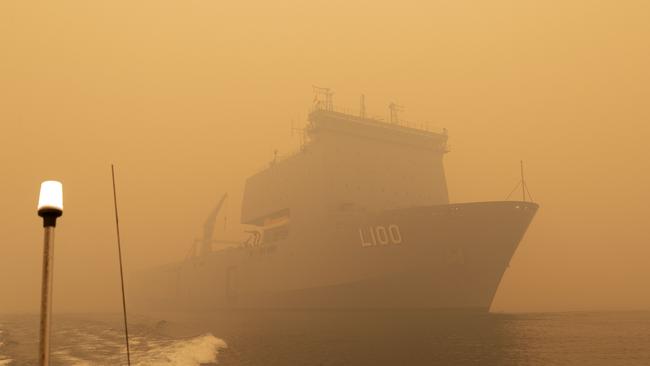
If you are living in a fire prone area or planning a trip to areas that have the potential to be impacted by fire, having a better understanding of your own biology and the ability to re-evaluate your knowledge on looking after yourself (including personal protection such as first aid kits or indeed survival kits) may well be the difference between life and death.
BE PREPARED
The two most valuable pieces of equipment every first aid kit should carry is a defibrillator and an epi pen.
An EpiPen will set you back around $150 and a mobile defib around $2000 and given you have literally minutes to be revived in the event of serious allergic reaction or cardiac arrest, they may be the best investments you ever make.
In light of extreme heat and reduced air quality, our first aid kits should also include some added survival equipment.
MORE NEWS
Stars raise millions for firefighters
How global fireys will help Australia
PM cancels India trip amid bushfire devastation
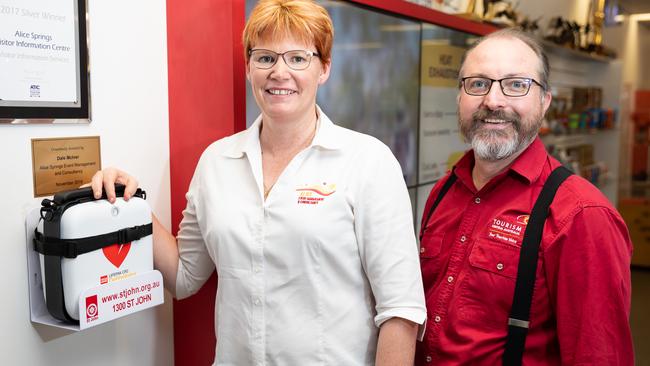
A P2 mask, available from most Australian hardware stores is a must, to prevent the inhalation of fine particles and gases, including carbon monoxide, carbon dioxide and nitrogen oxides brought about by bush fire smoke.
Make sure the masks you purchase fit and seal properly to your face and those of the entire family. Keep in mind, beards and other facial hair can make it impossible to get an appropriate seal.
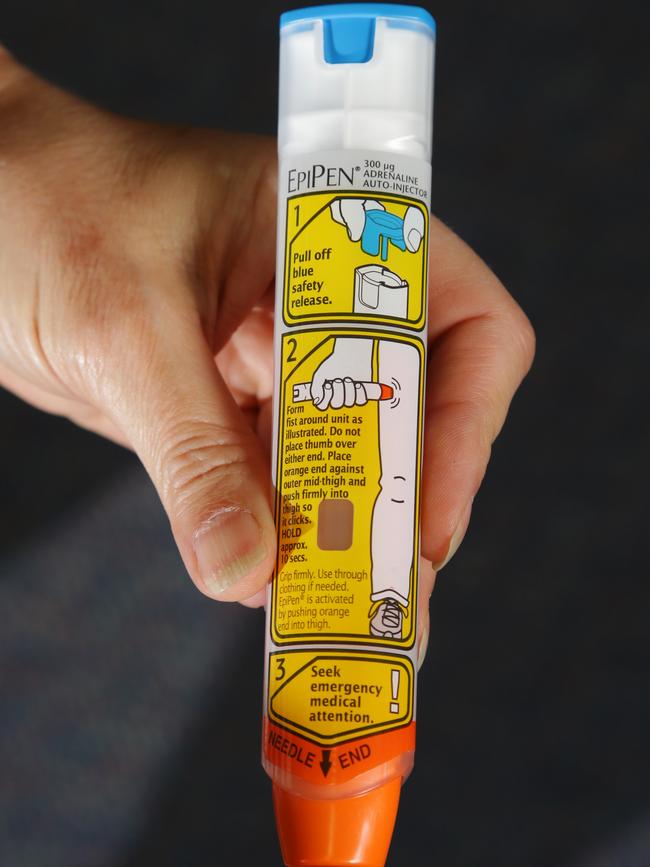
Ensure you have electrolyte solution available and stores of any regular medication including pain relief, cool packs that activate when crushed, a torch, spare phone and a pocketknife.
Also, ensure the car is packed with plenty of bottles of water, enough to keep you hydrated through multiple days. Remember, you may need up to three litres of water a day to replace the fluids you are losing in these extreme conditions.
The dangers of the heatwave that Australia is experiencing with the mercury regularly pushing into the high 30s and 40s are not limited to fire prone areas, with hundreds of lives lost in the past decade during heatwave conditions.
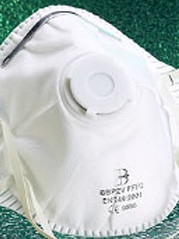
WHAT TO DO IF HEAT HITS YOU
As your body warms, your skin becomes flushed as blood vessels widen near the surface trying to cool your blood. This causes your respiration and heart rate to rise as the body compensates for the rapid changes taking place.
Three million sweat glands begin to discharge fluid across the surface of the skin to help cool the body. At this point it is highly likely you are feeling the effects of heat exhaustion, which if left unchecked will see other symptoms creep in like nausea, vomiting, feeling faint or dizziness.
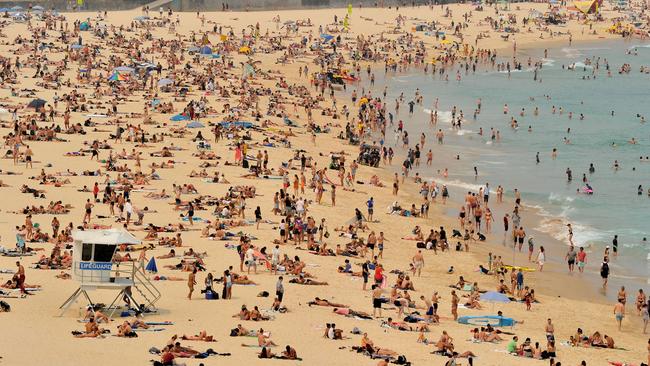
At the point of heat exhaustion, the first aid is simple, rest, get into some shade, drink lots of water and remove clothing.
If we fail to do this something extraordinary happens. Your body starts to run out of water to
provide the sweat glands, your skin becomes dry and hot and your body temperature begins to rise above 40°C.
Welcome to dangerous world of heatstroke.
The chemical reactions of cellular metabolism begin to fail. Proteins are destroyed and malfunction, membranes of tissue begin to lose their integrity and intestines discharge bacteria into your blood.
Your body quickly becomes toxic, your pulse rises rapidly, mental confusion is rife followed quickly by an altered level of consciousness, seizure coma and even death without immediate medical treatment.
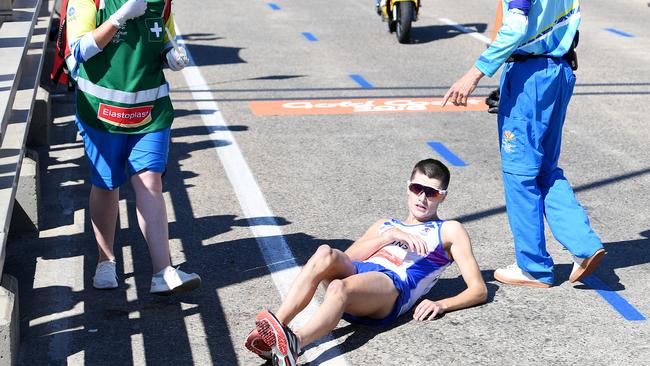
Anybody who watched the marathon on the final days of the Gold Coast Commonwealth Games witnessed this very process taking place as Scotland’s Callum Hawkins collapsed in horribly distressing scenes moments before the finish line, with bystanders oblivious to the medical emergency that was unfolding before their eyes.
Remember if heatstroke can occur to one of the fittest people on the planet, it can happen to you, so make sure you keep safe in these extreme conditions.
PREVENTION IS THE BEST CURE
During days of excessive heat all of us need to recognise and understand the signs and symptoms of ‘hot bodies’ and to make sure that we do not ignore our body telling us that something is not right.
The best treatment is prevention, so avoid exerting yourself physically in the heat, which means leaving those outdoor chores for a cooler day and where possible keeping yourself in doors with the air conditioner on.
If you are going to be outside on excessively hot days, or get caught without power during the
blackouts that commonly occur, make sure that you are aware of the dangers of hot days and stay as cool as you can, keep hydrated and avoid over exertion.
If you do begin to feel unwell take immediate action to get cool and hydrate.
KEEP AN EYE ON OTHERS
Keep a close eye on the health of those most vulnerable to heat, particularly the elderly, expectant mums and young children.
If you have elderly neighbours or relatives, check-in with them regularly to make sure that they are not locked up in their homes with windows shut, no airconditioning or fans, oblivious to the dangers that the heat IS posing.
Let’s all work together this summer to ensure we keep ourselves, family, friends and neighbours safe during these extreme heat events.
Paul Spinks is an Advanced Care Paramedic
Originally published as Expert tips on staying safe from the dangerous heatwave and fires that are engulfing the nation


